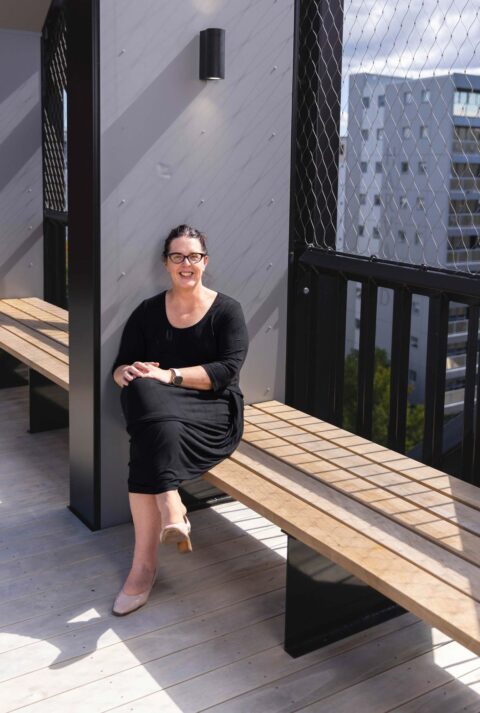Support workers have been undervalued for years. In 2013, Lower Hutt caregiver Kristine Bartlett claimed the women-dominated sector should be paid the same as its male-dominated counterparts. Five years, three court cases and two appeals later, the Government offered a $2b pay equity settlement to 55,000 support workers across the country. Has much changed? In the third part of the WOMAN investigative series Sasha Borissenko reports.
“People say, ‘you’re doing God’s work’. I say no, I don’t think God would actually put us through this. You’d have to have some harmony, structural support, and better pay for that,” says Jenny, a support worker for elderly people living independently.
Starting at just $15.75 an hour eight years ago, her wage increased to $19.50 an hour following the Government’s pay equity settlement in 2017.
“It’s still not enough. Then and now, there’s no job description of the huge range of tasks that are actually required of you. If you’re going into hospitality you’re not going to wipe people’s bums. I have to do everything and it seems only fair that I should be paid for it.”
Days can start anywhere from 6.30am and run late into the evening. Flexibility aside, the passenger seat of her car is her office space and her phone is her computer, she says. The assumption is that sitting down for a cup of tea with a client or eating while rushing around driving to a next client are considered breaks.
“I can be rushing madly from client to client and I won’t have time to go to the bathroom and settle myself or change my clothes if there’s been an ‘accident’. I have days where I’m literally running to attend to too many clients or days where there are pockets of time with little to do.”
Responsibilities may include: showering and dressing clients, washing clothes, cleaning, preparing meals, making the bed, applying ointment to skin, brushing people’s hair and teeth, distributing medication and complex care to clients with high medical needs.
And you’re supposed to do all of these things in a way and environment that doesn’t jeopardise a person’s sense of autonomy or safety, she says.
“The entire time, remember, that I’ve got to be friendly and accommodating. It takes an emotional toll. And then there are clients who might scream and yell at you because they’re scared or frustrated. I come home sometimes and feel drained and upset.
PSA organiser Robin Wilson-Whiting says support workers have struggled for decades to improve their working conditions. Unions successfully reached agreements over payment for travel time, allowances for workers using their own cars, and moving from casualised to guaranteed hours, for example.
And the low pay addressed in part in 2017 included agreed increases up to 2022 in the care and support workers pay equity settlement, but since expiring in June and thanks to the rising costs of living, there’s a sense of deja vu.
“Our view is that they’re not paid nearly enough – the rates don’t attract new workers and there’s no incentive for people to build careers. It means there’s understaffing. It’s not sustainable.”
The funding structure is part of the problem because independent providers are publicly funded, which then employ support workers to provide the care for clients.
The Government determines the funding increases for contracts with providers but when Wilson-Whiting represents support workers in collective bargaining, the employer doesn’t hold the purse strings to be able to deliver the things the workers need, she says.
Workers need a fairer model of hours of work – shifts with continuous work, paid and rostered refreshment breaks and reimbursement when travelling between clients, she says.
People stay in the workforce because they love it; they love their clients and they build relationships with them and it’s a bond that these older people in the community really rely on, she says.
“Residential facilities are incredibly expensive so it’s in society’s interests to ensure people are independent as long as possible. Support workers are largely overlooked and they’re not seen across the public discourse as an important part of our health system.”
Te Whatu Ora – Health New Zealand acting group manager Mark Powell says the negotiated settlement of the Bartlett case delivered significant benefits across the workforce, including funding for training, a qualifications-based salary scale, consistent pay rates across different employers and annual wage increases enforced through the Support Workers (Pay Equity) settlements Act 2017.

It did, however, prevent support workers from taking a pay equity claim to determine if their pay rates were free from sex-based discrimination until the expiry of the legislation on 30 June 2022.
In June, the legislation’s provisions covering training, the qualifications-based salary scale and payment of consistent pay rates across different employers were extended by 18 months to expire on 31 December 2023 and further funding provided to increase support worker wage rates, he says.
“The extension and additional funding has provided support workers with statutory support while they work with their employers to progress through the pay equity process established through the recent amendments to the Equal Pay Act 1972 to set pay rates free of sex-based discrimination.”








